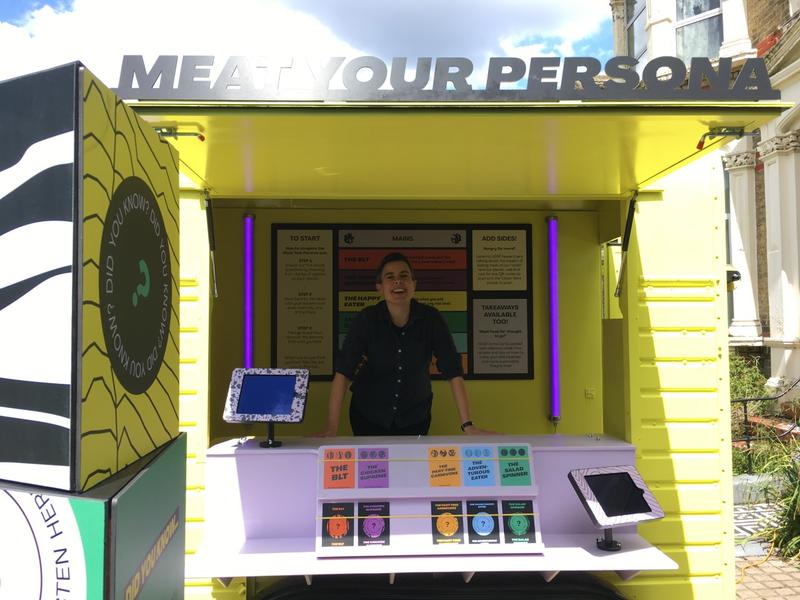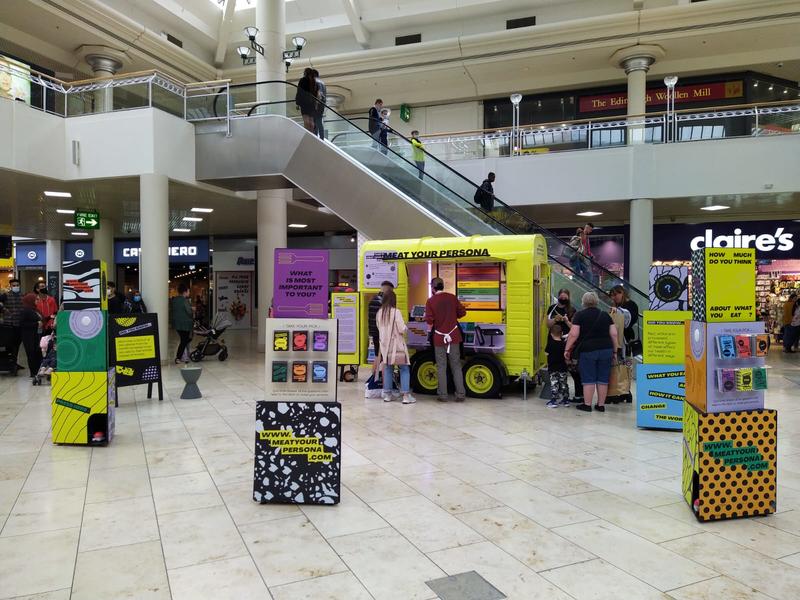We want people to understand where the possibilities for change lie
An interview with Lucy Yates
As public engagement lead for the Sustainable and Healthy Food Group in the Nuffield Department of Primary Care Health Sciences, Lucy Yates spends her days considering what scientific research might be interesting to the public. It is a job that requires a combination of skills: talking to scientists undertaking world-leading research, understanding the research, and considering how much an ordinary person might know, or need to know, about a specific topic. As part of the Healthy and Sustainable Food Group, Yates has worked on both the LEAP and SHIFT projects, focused on dietary change and climate impacts of diet. Talking about her work on the LEAP project, she tells me: 'I say to our scientists, what can we tell people? If your average person ate three less burgers per week, what would the difference be? And they go away and argue and come up with a number that is as accurate as possible'. Robustness and accuracy are an important part of Yates's work, but so is acknowledging when we don't know something. Given the nature of the topics Yates works on, it is also a fine balancing act between communicating the urgency of change needed, and avoiding scaring people into apathy. 'You want a balance where people feel like their dietary changes can make a difference and they feel empowered, but are also not crushed by the responsibility,' she explains.

Lucy Yates in the bright yellow horsebox of Meat Your Persona
When we communicate on a project, we are trying to be realistic but also want to make people feel uplifted, that things are possible and doable
Yates's current project is part of SHIFT (Sustainable and Healthy Interventions for Food Transitions) funded by the Wellcome Trust. Yates has developed a digital interactive game for visitors to play at the Manchester Museum. The game lets players take on the role of mayor and make decisions about food in a (mythical) region called Mancunia. The first decision? Should all school meals be free and vegetarian? 'We wanted people to understand how the food system works and how the food system shapes our food choices. The food system often determines what you can eat in very straightforward ways and we wanted people to have a better understanding of that, but to feel empowered by that, to understand where the possibilities for change lie,' she explains. In the game, you can see the impact of your decisions after every choice you make. If you did decide to give every school child in Mancunia a free, vegetarian school meal, it would have really good impacts on health and the environment but would probably be quite expensive.

Why is this important? 'We are so detached, most of us, from the food system. We are increasingly an urbanised population, food just appears in the supermarket, and I want to talk to people and get them to understand the impacts of what they are eating,' Yates tells me, explaining her motivation for doing this type of work. Yates has a very practical, audience first approach to her engagement work. Surveys at the beginning of the LEAP project in 2018 showed that most of the UK population didn't understand or agree that meat eating had an environmental impact. Yates's solution? Go where there are large numbers of people - shopping centres. Working with a creative agency, Yates designed the Meat Your Persona exhibit, a bright yellow horsebox that could be unpacked and moved around the country. 'If you have been listening,' she explains, 'by the end [of an event] you will know what the public want to know. I love that. It is really great for our scientists too'.
We should be bringing our research to people; we should be connecting people to that. It strengthens our research when we talk to people
What do the public need to know? What do our scientists want to tell them? How much do the public need to know? How much of the science is relevant? How much of it is important for people on a day-to-day basis? These are the questions Yates asks that shape her work. 'The Oxford name really carries a lot of weight and a lot of cache, and people can be intimidated by that so it is our job to start overturning those barriers. To go and talk to people, reach out to people and show them that a lot of what we do is incredibly relevant to their lives. As it should be! Oxford does world-class research. We should be bringing that to people, we should be connecting people with that. And it strengthens our research when we talk to people, when we don't just stay within the confines of the university. I think that mutually beneficial relationship is really crucial'. Yates believes that there are reasons to be optimist about changes to the food system. 'I think awareness is changing. It is easy to be impatient about that but I think the numbers of people who understand that diet impacts climate change is growing,' she says. Recently she went to a talk by Sir Professor Chris Whitty, Chief Medical Officer for England, where he showed a graph of life expectancy from the 19th century that demonstrated relentless upward growth. 'That felt really cheerful actually,' she explains, 'there has always been health misinformation, there have always been vested interests, but we have actually made a lot of progress. It would be nice to believe that can continue'.
The Mayor of Mancunia is now open at the Manchester Museum in the Living Worlds Gallery.





